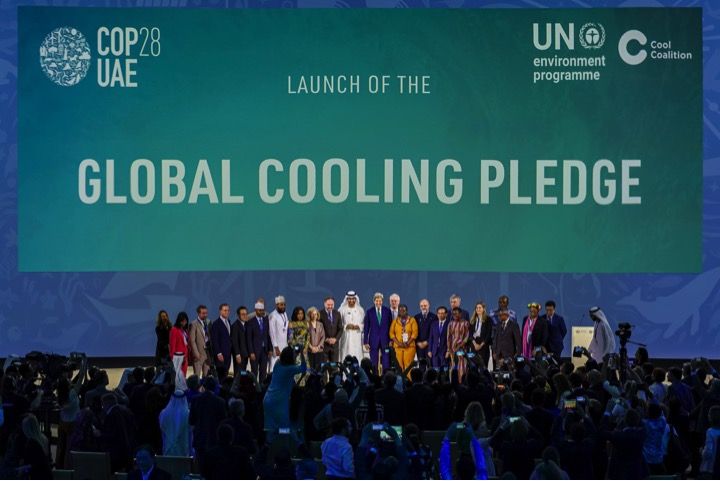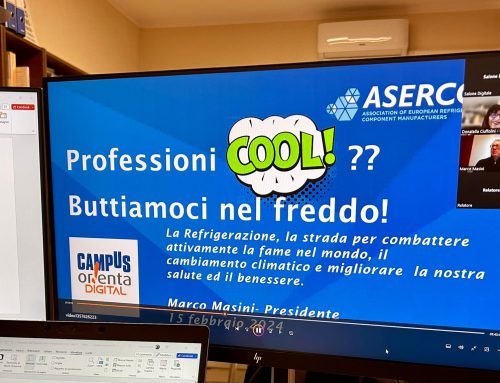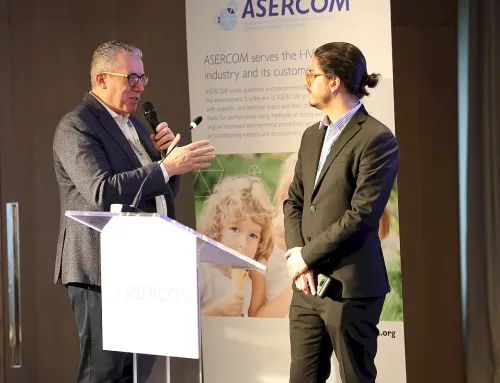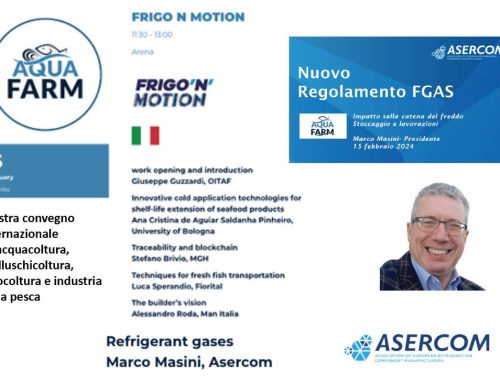COP28 has concluded, and in the “Summary of Global Climate Action at COP28,” there is some mention of our industry, but unfortunately, nothing in the final UN Press Release (LINK).
During COP28, refrigeration and air conditioning, which are particularly relevant to ASERCOM, were considered, thanks to the Global Cooling Pledge. We supported this through the Cool Coalition, a global multi-stakeholder network that connects a wide range of key actors to facilitate knowledge exchange, advocacy, and joint action towards a rapid global transition to efficient and climate-friendly cooling.
The Global Cooling Pledge, on December 8th, ultimately included 66 national government signatories committed to working together with the aim of reducing cooling-related emissions across all sectors by at least 68 percent globally relative to 2022 levels by 2050. Unfortunately, Europe did not apply as a whole, and major European countries such as Italy, Austria, Poland, Romania, and many others did not apply (list of applicants at the end). Despite this, the voluntary Pledge intends to raise ambition and international cooperation through collective targets on improving energy efficiency and climate-friendly approaches (the so-called ‘sustainable cooling’), while increasing access to sustainable cooling for the most vulnerable countries.
Sustainable cooling refers to actions across all cooling sectors and applications that move towards net-zero emissions from cooling actions by 2050, such as through:
- Passive cooling,
- Increased efficiency, and
- Low-Global Warming Potential (GWP) refrigerants.
Transitioning to environmentally-friendly low-GWP refrigerants could improve the emissions savings from mechanical cooling, which accounts for 20% of global electricity consumption (UNEP 2023) and is a top driver of global electricity demand and of generation capacity additions to meet peak power demand.
Cooling is considered an adaptation strategy that will result in increased GHG emissions if not transitioned. According to the Global Cooling Pledge final document, coordinated international action on sustainable cooling can save 78 billion tonnes of CO2e between now and 2050, improve the lives of hundreds of millions, and realize huge financial savings (UNEP 2023). The document, consistent with the concept of energy efficiency and savings as the “first fuel” to achieve net-zero emissions by 2050 at the latest and energy transitions, supports a 50% increase in performance by 2030, recognizing that, on top of this, passive cooling strategies can reduce a building’s cooling load by more than 25% (World Bank Group, 2020). That said, the conclusions from the signatories are such that they commit to supporting robust action through the Montreal Protocol Multilateral Fund for early action to reduce HFC consumption and to promote improved energy efficiency for the hydrochlorofluorocarbons (HCFC) phase-out and HFC phase-down. Then they commit to publishing a national cooling action plan, considering cooling when publishing a national action plan.
They commit to establishing Minimum Energy Performance Standards (MEPS) by at the latest 2030 and aim to routinely raise ambition and progress consistent with respective national laws with a view to achieving net-zero emissions by 2050 and noting the best available technology and available model regulation guidelines. Finally, for our interest, they commit to establishing or updating public procurement policies and guidance for low-GWP and high-efficiency cooling technologies and innovative solutions where feasible, or ensure broader arrangements are in place that drive such approaches in public procurement by at the latest 2030. What also matters to everybody in the value chain, signatories commit to pursuing the life cycle management of fluorocarbons, in particular addressing HFC banks, if feasible, such as through the Initiative on Fluorocarbons Life Cycle Management.
Signatory countries in Europe are:
- Belgium
- Bulgaria
- Denmark
- France
- Germany
- Netherlands
- Norway
- Spain
- United Kingdom







